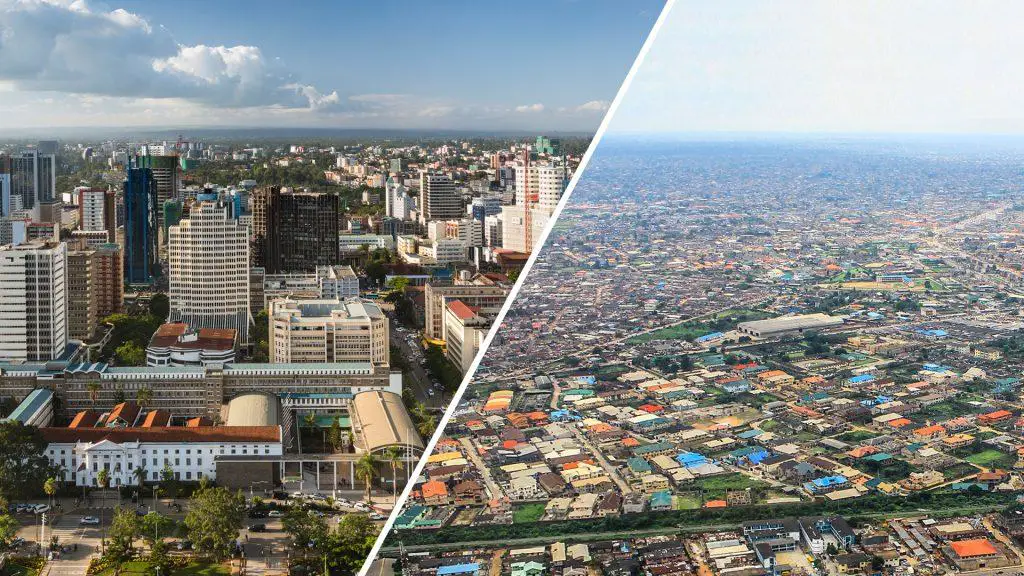- Microsoft announced plans to deliver internet access through satellite to 10 million people, half of whom will live in Africa
- Microsoft and Viasat will work together to develop and test technologies, such as fixed wireless and satellites
- Microsoft and Viasat will offer connectivity and digital literacy to improve healthcare, education, and economic productivity.
Microsoft has announced plans to deliver internet access through satellite to 10 million people, half of whom will live in Africa, as part of its initiative to bridge the digital divide with the developing world.
At a Summit with African leaders in Washington, DC, hosted by President Joe Biden, the tech giant said it would commence the satellite project immediately, prioritising internet connection for the first time to Egypt, Senegal and Angola.
Microsoft announced plans to extend its operations in Nigeria and the Democratic Republic of the Congo and provide internet connectivity in more remote parts of the United States, Guatemala, and Mexico, in collaboration with satellite service provider Viasat.
This collaboration expands on ViaSat and Microsoft Azure Space’s current connection to enable breakthroughs in satellite communication. It supports Microsoft’s mission to link anybody, anywhere on the earth.
By the end of 2025, the programme wants to provide Internet connectivity to a quarter of a billion people worldwide, including 100 million people in Africa. This historic global cooperation for Airband is a crucial step in that direction.
“It’s hard for people who don’t go there or don’t think about Africa for a long time even to conceive it,” Smith said. “Electricity is, in my opinion, the greatest invention of the 19th century.
When it comes to broadband, he explained that you need energy to access the internet at any speed.
Because the continent did not have the same “amazing web of licencing regimes” in place from the past, Smith sees widespread support in Africa for introducing internet access. He added that many countries had advanced past their Western counterparts in ease of regulation.
According to the International Telecommunication Union of the United Nations, a third of the world’s population, or 2.7 billion people, have never utilised the internet.
There are now more possibilities for traditional connectivity in rural regions thanks to satellite Internet access.
Together, the businesses pool their knowledge and resources to make telehealth, online education and training, precision agriculture, sustainable energy, and other services possible to reach new markets through the revolutionary delivery of connectivity and electricity.
Microsoft and Viasat will work together to develop and test technologies, such as fixed wireless and satellites (both in geostationary and low Earth orbit).
“We think having internet access is a fundamental right. Having digital skills helps people, businesses, and governments succeed economically. We want to provide 100 million people in Africa with high-speed internet access through our AirBand initiative. By 2025, a quarter of a billion people will live in locations with limited or no access to the internet, “Vice president of technology and corporate responsibility at Microsoft, Teresa Hutton, said.
“We’ll deploy satellite technology in collaboration with Viasat to reach remote locations that previously had few alternatives for traditional connectivity. We will create a vast pipeline of initiatives and new nations together. We’ll be able to quickly scale up and increase the Airband’s range thanks to the invention,” She continued.
Airband Initiative Supports SDG
The Sustainable Development Goals (SDGs) of the United Nations include universal, affordable internet access. By concentrating a large portion of their new partnership on Africa, Microsoft and Viasat will offer connectivity and digital literacy to improve healthcare, education, and economic productivity. Possibilities in essential marketplaces.
“As both organisations collaborate to close the digital divide and make substantial strides toward digital equity, we are happy to join with Microsoft as this represents another crucial step in bringing inexpensive internet service to Africa, Latin America, and the Americas. Inclusion,” said Ivan Dixon, head of Global Fixed Broadband, Viasat.
“continues to break down barriers.” “Providing Internet connectivity to everyone on the planet is a difficult and audacious objective, and accomplishing so ethically and ecologically will create enduring possibilities for those who need it most.” More is required, He added.
Microsoft’s Airband Initiative Local partnership
More than 51 million people have access to high-speed Internet through AirBand thanks to Microsoft and its partners, including more than 4 million in rural US areas and 16 outside the US that were inaugurated in 2017.
Forty-seven million more people reside in underdeveloped and neglected nations. Microsoft’s Airband Initiative partners with local and regional Internet and energy access providers, telecommunications equipment manufacturers, non-profits, and government and non-governmental organisations to provide affordable internet and pertinent digital services globally.
Increased availability of skills According to Microsoft, everyone has a fundamental right to access the internet.
Read: Africa: Internet economy to hit US$180 billion in 2025
